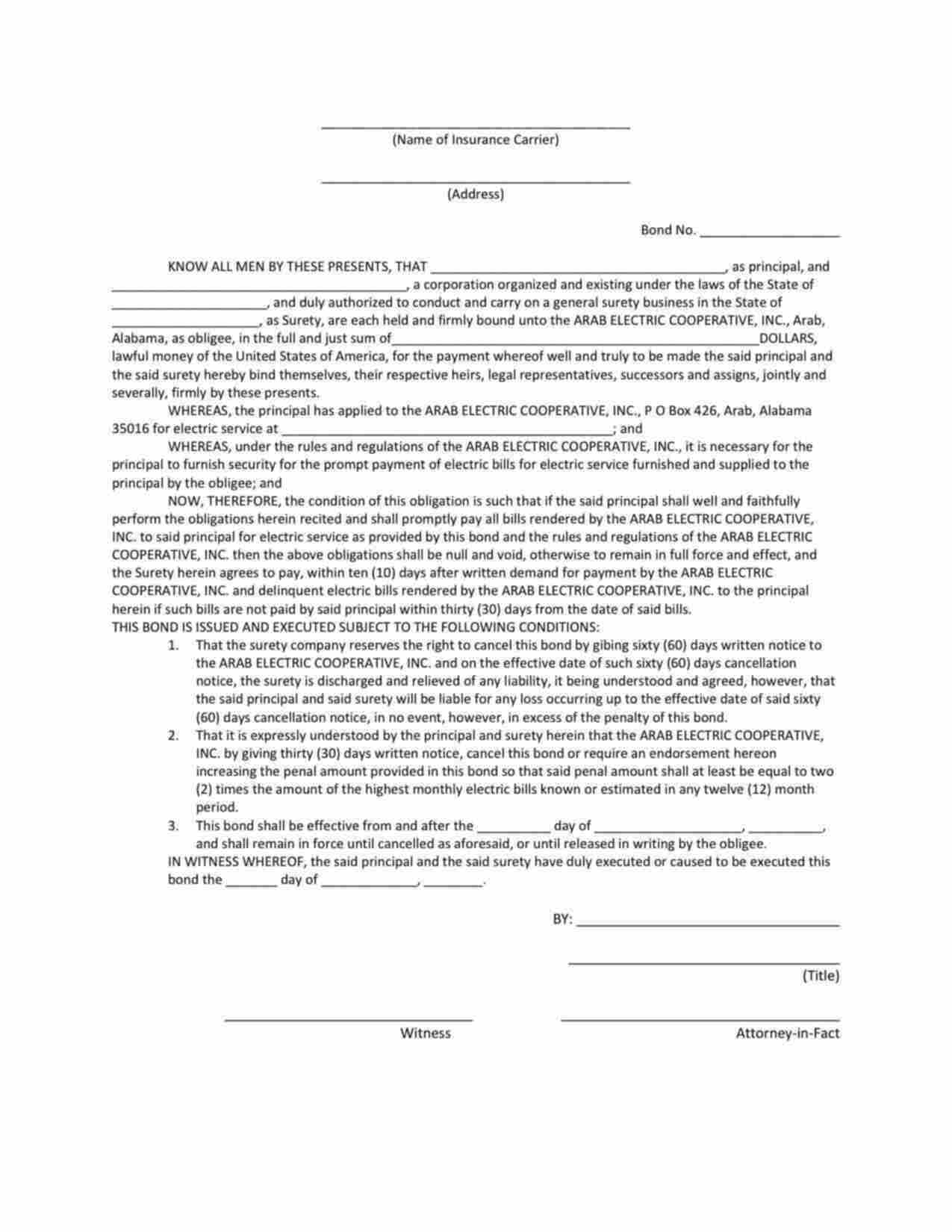Alabama Utility Deposit Bond

Cancellation Period:
60 days
Limit:
$0 - $999,999
Credit Check Required?
Yes
Businesses are required to file a bond with the (the "Obligee") to activate their license. The bond protects the Obligee by transferring to a surety bond company the cost of ensuring the public is compensated for damages resulting from a licensed business breaking licensing laws.
How much does the Alabama Utility Deposit bond cost?
Alabama Utility Deposit bonds typically cost between $1,000 - $7,500.
Is a Credit Check Required for Alabama Utility Deposit Bonds?
Credit checks are required for the Alabama Utility Deposit Bond.
Why is the Alabama Utility Deposit bond required?
Businesses are required to purchase and file a bond with the to activate their license. The bond protects the Obligee by transferring to a surety bond company the cost of ensuring the public is compensated for damages resulting from the failure of a licensed business complying with the provisions of licensing laws.
How does the Alabama Utility Deposit bond work?
Alabama Utility Deposit bonds must be issued by an insurance carrier admitted by the Alabama Department of Insurance. The insurance company issuing any surety bond, such as the Utility Deposit bond, will also be referred to as the "surety company" or the "bond company". The business is referred to as the Principal, the surety bond company as the Obligor and the as the Obligee.
The surety company provides the Obligee a guarantee (the surety bond) that the customers, vendors and employees of a licensed business will receive payment for financial damages due to a violation of licensing law up the bond amount stated on the bond form ("penal sum"). The bond company also directly receives claims from the public and determines the validity of claims. Ultimately, the licensed business owners are responsible for their actions and required by law to reimburse the surety company for any payments made under the bond or face indefinite license suspension.